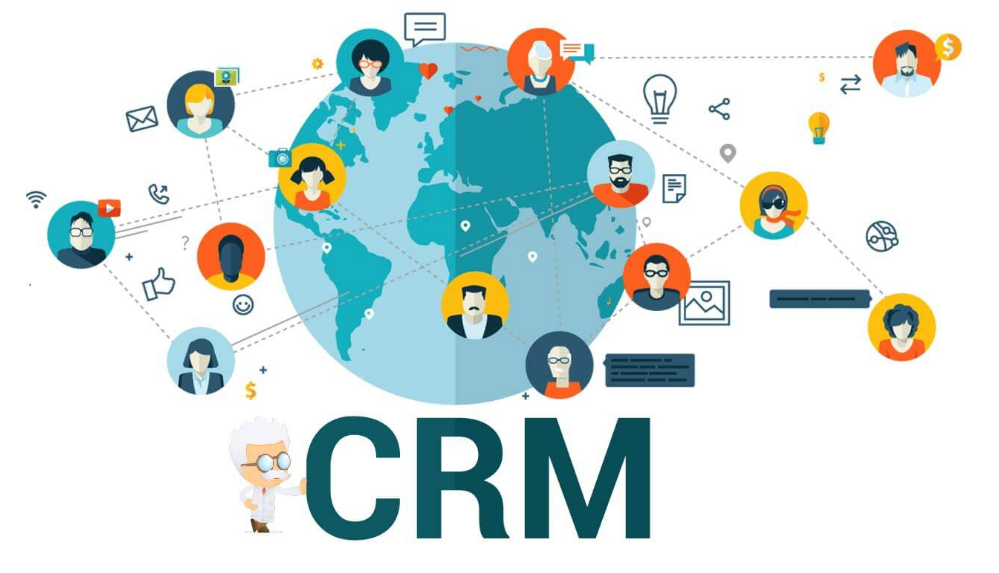Beyond Sales: Expanding CRM Applications across Industries
In today’s rapidly evolving business landscape, Customer Relationship Management (CRM) systems have transcended their traditional role in sales and marketing departments. These versatile tools are now being employed across various industries to enhance customer interactions, streamline processes, and drive overall business growth. Let’s delve into the dynamic world of CRM applications and explore how they’re making an impact beyond sales.
Introduction
In today’s rapidly evolving business landscape, Customer Relationship Management (CRM) systems have transcended their traditional role in sales and marketing departments. These versatile tools are now being employed across various industries to enhance customer interactions, streamline processes, and drive overall business growth. Let’s delve into the dynamic world of CRM applications and explore how they’re making an impact beyond sales.
The Evolution of CRM
From its early beginnings as a basic contact management system, CRM has morphed into a comprehensive solution that caters to diverse business needs. What started as a sales-focused tool has now become a cornerstone for businesses aiming to foster lasting customer relationships and improve operational efficiency.
CRM in Marketing: More Than Just Leads
Marketing has found a powerful ally in CRM systems. Beyond lead management, CRM platforms now enable marketers to understand customer behavior, personalize campaigns, and analyze the effectiveness of their strategies. This integration bridges the gap between marketing and sales, creating a seamless customer journey.
CRM in Healthcare: Enhancing Patient Care
Healthcare providers leverage CRM to enhance patient experiences. These systems store patient preferences, medical histories, and appointment schedules, allowing for personalized care. CRM also facilitates communication between doctors and patients, leading to improved patient engagement and health outcomes.
Education Sector: Fostering Student Relationships
Educational institutions recognize the value of CRM in managing student relationships. From enrollment to graduation, CRM systems track student progress, manage inquiries, and facilitate communication between educators, students, and parents, ultimately contributing to better education experiences.
Optimizing Customer Support with CRM
Customer support has been revolutionized by CRM applications. Service agents access customer information swiftly, leading to faster query resolution. Moreover, CRM integrates self-service options, empowering customers to find solutions independently, thereby enhancing overall satisfaction.
Manufacturing and Supply Chain Management
Even in manufacturing, CRM has a role to play. By analyzing customer preferences and market trends, manufacturers can fine-tune production and distribution strategies. This data-driven approach minimizes waste, reduces costs, and ensures products align with customer demands.
Personalization and CRM in E-commerce
E-commerce thrives on personalization, and CRM systems provide the tools needed to understand and anticipate customer preferences. By analyzing purchase histories and online behavior, e-commerce businesses curate product recommendations and tailor shopping experiences.
Financial Services Industry Transformation
The financial sector benefits from CRM in managing complex client relationships. These systems assist in wealth management, financial advisory, and tracking regulatory compliance. By centralizing data, financial institutions can offer more informed and personalized services.
Hospitality: Delivering Memorable Guest Experiences
Hotels and hospitality businesses utilize CRM to create memorable stays. From reservation management to guest preferences, CRM systems enable staff to offer personalized services, enhancing guest satisfaction and loyalty.
The Role of CRM in Nonprofits
Nonprofit organizations rely on CRM to manage donor relationships, streamline fundraising efforts, and track community engagement. These systems help nonprofits operate efficiently, allocate resources effectively, and achieve their missions.
Data Security and Privacy Considerations
As industries embrace CRM, data security and privacy become paramount. Safeguarding customer information is a top priority, and businesses must implement robust security measures and comply with regulations to maintain trust.
Integration Challenges and Solutions
Integrating CRM systems with existing infrastructure can pose challenges. However, with proper planning and the use of compatible technologies, businesses can overcome integration hurdles and unlock the full potential of CRM.
The Future of CRM: AI and Beyond
Artificial Intelligence is poised to revolutionize CRM further. Predictive analytics, chatbots, and machine learning will empower businesses to anticipate customer needs, automate tasks, and gain deeper insights from their data.
Conclusion
In conclusion, CRM has transcended its initial purpose and is now a vital tool across diverse industries. From healthcare to education, manufacturing to hospitality, the applications of CRM continue to reshape how businesses operate and interact with customers.
FAQs
- Is CRM only used for sales? No, CRM is now used across various industries for diverse purposes, including marketing, customer support, and more.
- How does CRM enhance customer experiences? CRM allows businesses to personalize interactions, anticipate needs, and provide swift support, leading to improved customer experiences.
- Can small businesses afford CRM implementation? Yes, there are CRM solutions tailored for businesses of all sizes, offering scalable options to suit different budgets.
- What role does AI play in the future of CRM? AI will enable predictive analytics, automation, and smarter insights, transforming CRM into an even more powerful tool.
